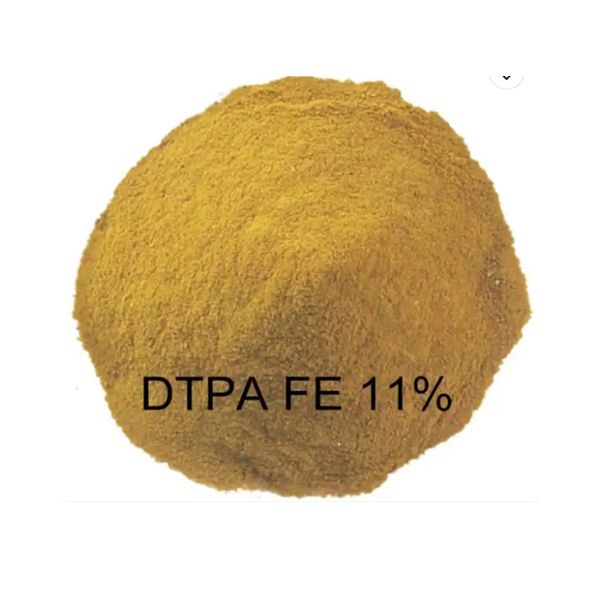Chelating agents are essential in modern agriculture for enhancing nutrient availability and uptake by plants. They work by binding essential micronutrients like iron, zinc, and copper, preventing them from reacting with soil compounds and making them more accessible to plants.
Nutrient Stabilization: Chelating agents like EDTA, EDDHA, and IDS bind essential micronutrients (e.g., iron, zinc, copper) to prevent them from reacting with soil compounds, ensuring plants can absorb them effectively.
Iron Deficiency Correction: Agents such as EDDHA are widely used to treat iron chlorosis, a common issue in alkaline soils, promoting healthier and greener crops.
Fertilizer Efficiency: By stabilizing nutrients, chelating agents enhance the performance of fertilizers, reducing waste and improving crop yields.
Soil Health: They help maintain balanced soil chemistry, supporting sustainable farming practices.
Why Use Chelating Agents in Agriculture?
Boost nutrient uptake and crop productivity.
Prevent nutrient deficiencies, especially in challenging soil conditions.
Support eco-friendly farming by optimizing fertilizer use.
-
Высакаякасныя і лёгкаэфектыўныя мікраэлементы — DTPA-FE
Будучы высакаякасным хелаціруючым агентам, DTPA валодае выдатнай хелаціруючай здольнасцю ў дачыненні да іёнаў жалеза. З'яўляючыся лёгкаэфектыўным хелатированным мікраэлементам, DTPA мае лепшую эфектыўнасць, чым звычайныя хелатирующие рэчывы. -
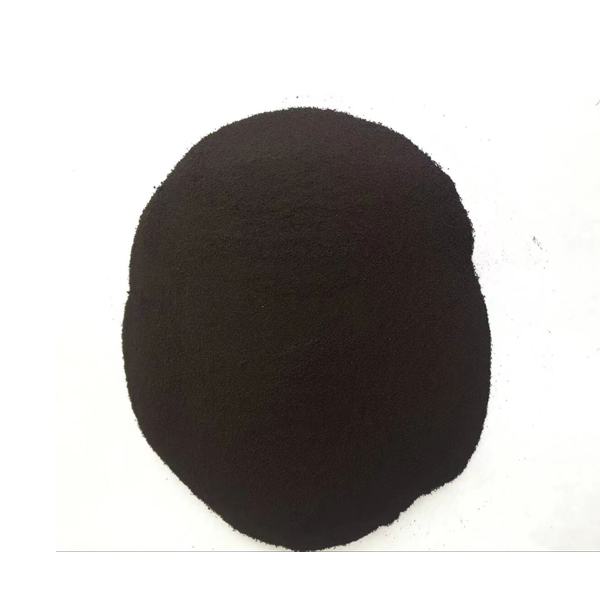
Высакаякасныя і лёгкаэфектыўныя мікраэлементы — EDDHA
Як высакаякасны хелатирующий агент, EDDHA мае выдатную хелатную здольнасць да іёнаў жалеза. У якасці лёгкаэфектыўных хелатных мікраэлементаў EDDHA мае лепшую прадукцыйнасць, чым звычайныя хелатирующие рэчывы. -
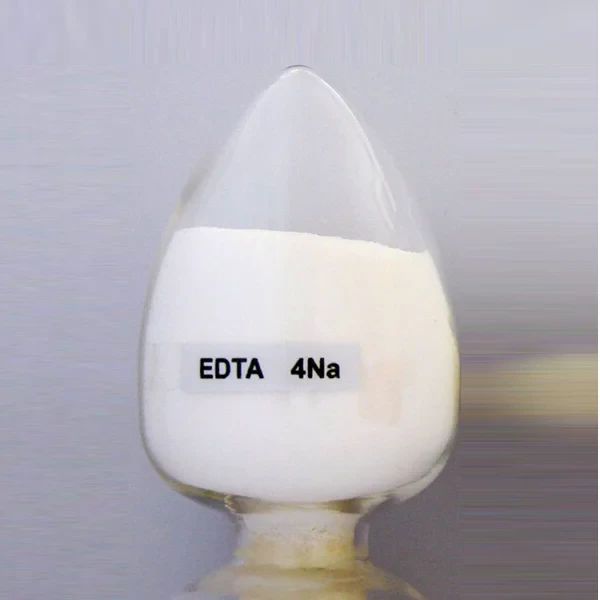
Тэтранатрыевая соль этылендыямінтэтраацэтатнай кіслаты (EDTA-4Na)
Нумар CAS: 13235-36-4 Малекулярная формула: C10H12N2O8Na4 Уласцівасці: белы крышталічны парашок. Раствараецца ў вадзе і здольны ўтвараць хелаты з рознымі іёнамі металаў -
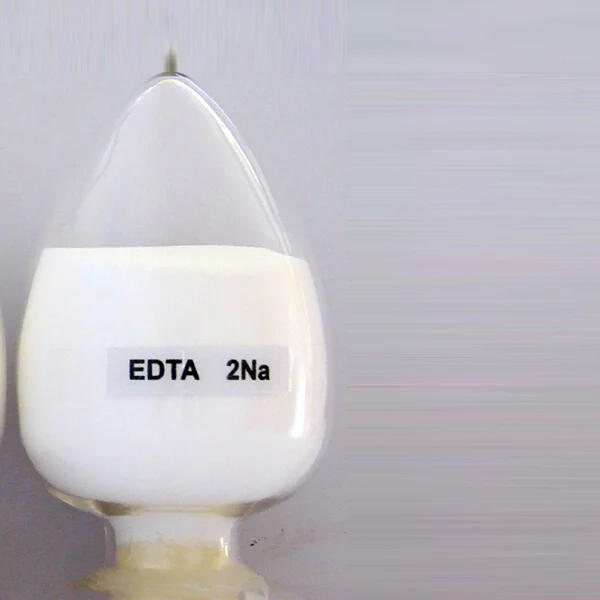
Двунатрыевая соль этилендиаминтетрауксусной кіслаты (EDTA-2Na)
Дынатрыевая соль ЭДТА (ЭДТА-2Na), 99% Малекулярная формула: C10H14N2O8Na2 Малекулярная маса: М=336,206 Нумар CAS: 6381-92-6;139-33-3 Уласцівасці: белы крышталічны парашок. Раствараецца ў вадзе і здольны ўтвараць хелаты з рознымі іёнамі металаў -
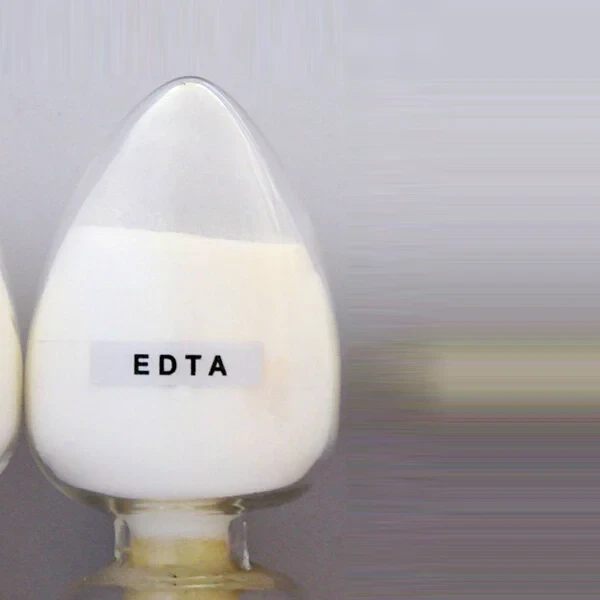
Этилендиаминтетрауксусная кіслата (ЭДТА-кіслата)
Назва прадукту: Этылендыямінтэтрауксусная кіслата Нумар CAS: 60-00-4
Why EDTA is a Chelating Agent?
EDTA (Ethylenediaminetetraacetic acid) is a powerful chelating agent widely used across industries due to its ability to bind and stabilize metal ions. Its molecular structure features multiple carboxylate groups that form strong, stable complexes with metal ions like calcium, magnesium, iron, and heavy metals. This makes EDTA highly effective in:
Water Treatment: Preventing scale and corrosion by sequestering metal ions.
Agriculture: Enhancing nutrient availability in fertilizers.
Cosmetics and Pharmaceuticals: Stabilizing formulations and preventing metal-induced degradation.
Cleaning Products: Improving detergent efficiency by softening water.
Despite its effectiveness, EDTA’s poor biodegradability has led to environmental concerns, driving demand for eco-friendly alternatives like IDS (Iminodisuccinic acid). However, EDTA remains a popular choice for its unmatched chelating performance and versatility.
What is the Function of a Chelating Agent?
Chelating agents are compounds that bind and stabilize metal ions, preventing them from causing unwanted reactions. Their key functions include:
Preventing Scale: By sequestering calcium and magnesium ions in water treatment.Enhancing Cleaning: Softening water and improving detergent efficiency.
Boosting Agriculture: Increasing nutrient availability in fertilizers for better crop growth.
Stabilizing Formulations: Protecting cosmetics, pharmaceuticals, and industrial products from metal-induced degradation.
Popular chelating agents like EDTA and eco-friendly alternatives such as IDS (Iminodisuccinic acid) are essential for improving performance across industries while addressing environmental concerns.
EDDHA Agricultural Fertilizer for Crop Applications
EDDHA (Ethylenediamine-N,N'-bis(2-hydroxyphenylacetic acid)) is a highly effective iron chelate fertilizer used to prevent and correct iron deficiency in crops. Its key benefits include:
Strong Chelation: Stable in a wide pH range, ensuring iron availability in alkaline soils.
Improved Crop Health: Enhances chlorophyll production, leading to greener leaves and higher yields.
Versatile Use: Suitable for a variety of crops, including fruits, vegetables, and cereals.
EDDHA fertilizers are applied through soil or irrigation systems, making them a reliable solution for combating iron chlorosis and boosting agricultural productivity.


